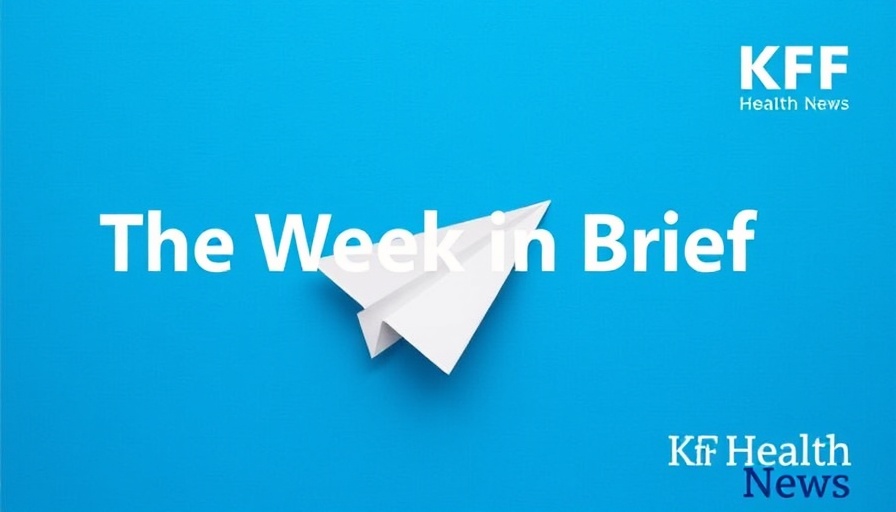
Medicaid Cuts: A Looming Crisis for Tribal Health Services
As Congress deliberates massive cuts to federal Medicaid funding, tribal health leaders warn of an impending crisis that could severely affect healthcare services for Native American populations. This discussion arises within the context of the potential $880 billion reduction over the next decade, a move that directly threatens the stability of health services that many rely on.
The Importance of Medicaid for Native American Health
Medicaid, a joint federal-state program, plays a crucial role in covering health costs for over a million Native Americans. According to Liz Malerba, a key advocate for tribal healthcare, Medicaid serves as a vital lifeline that compensates for chronic underfunding from the Indian Health Service (IHS). The shared funding structure is particularly important, as it not only boosts healthcare quality but also helps to mitigate vast health disparities that Native American communities face.
A Unique Relationship: Tribal Health and Medicaid Funding
With Medicaid accounting for approximately two-thirds of non-IHS revenue for tribal health providers, any cuts could drastically alter not just financial structures but overall health outcomes. Given that many tribal facilities derive 30% to 60% of their budget from Medicaid, the implications of funding cuts could be catastrophic. Health facilities may be forced to reduce essential services just when they are needed most, according to leaders like Winn Davis from the National Indian Health Board.
Health Disparities: Understanding the Context
The backdrop of these legislative maneuvers is critical. Native American populations experience serious health disparities highlighted by shorter life expectancy and a high prevalence of chronic illnesses. In this light, Medicaid funding represents more than mere numbers; it embodies the federal government’s alignment with its trust and treaty obligations to provide healthcare for Native peoples. Nevertheless, the increasing demand for healthcare services underscores the potential fallout of reduced funding.
Survival Strategies in Response to Potential Cuts
As the threat of cuts looms, tribal leaders are gearing up for advocacy efforts to secure funding exemptions. The power of collective action among tribal health advocates could prove pivotal in the face of these financial challenges. Grassroots campaigns and collaborative lobbying efforts may forge new paths to maintain the flow of essential resources to community health programs.
Looking Ahead: Future Predictions and Trends
If Medicaid funding is slashed, the consequences could echo through tribal communities for generations. Notably, the long-term vitality of these communities depends on sustained healthcare services. Tribal leaders stress that the fight against these cuts is not simply a matter of budget adjustments; it is about preserving the foundational health infrastructure that ensures a healthier future for their communities.
Conclusion: The Imperative of Action
The stakes surrounding Medicaid funding and its implications for tribal health services are immense and deeply intertwined with broader issues of social justice and governmental responsibility. Advocating for the preservation of these funds is crucial, not merely for the present, but for the future wellbeing of Native American populations. It is essential for business leaders and policymakers alike to be involved in discussions aimed at securing these critical resources. As such, understanding the relational dynamics inherent in these healthcare discussions can foster informed advocacy efforts that could shape future policies.
In light of these developments, it is imperative for those in strategic positions—be it in business or governance—to engage with this topic actively. Your voice matters in this critical dialogue about healthcare equity and sustainability.
 Add Row
Add Row  Add
Add 




 Add Row
Add Row  Add
Add 

Write A Comment